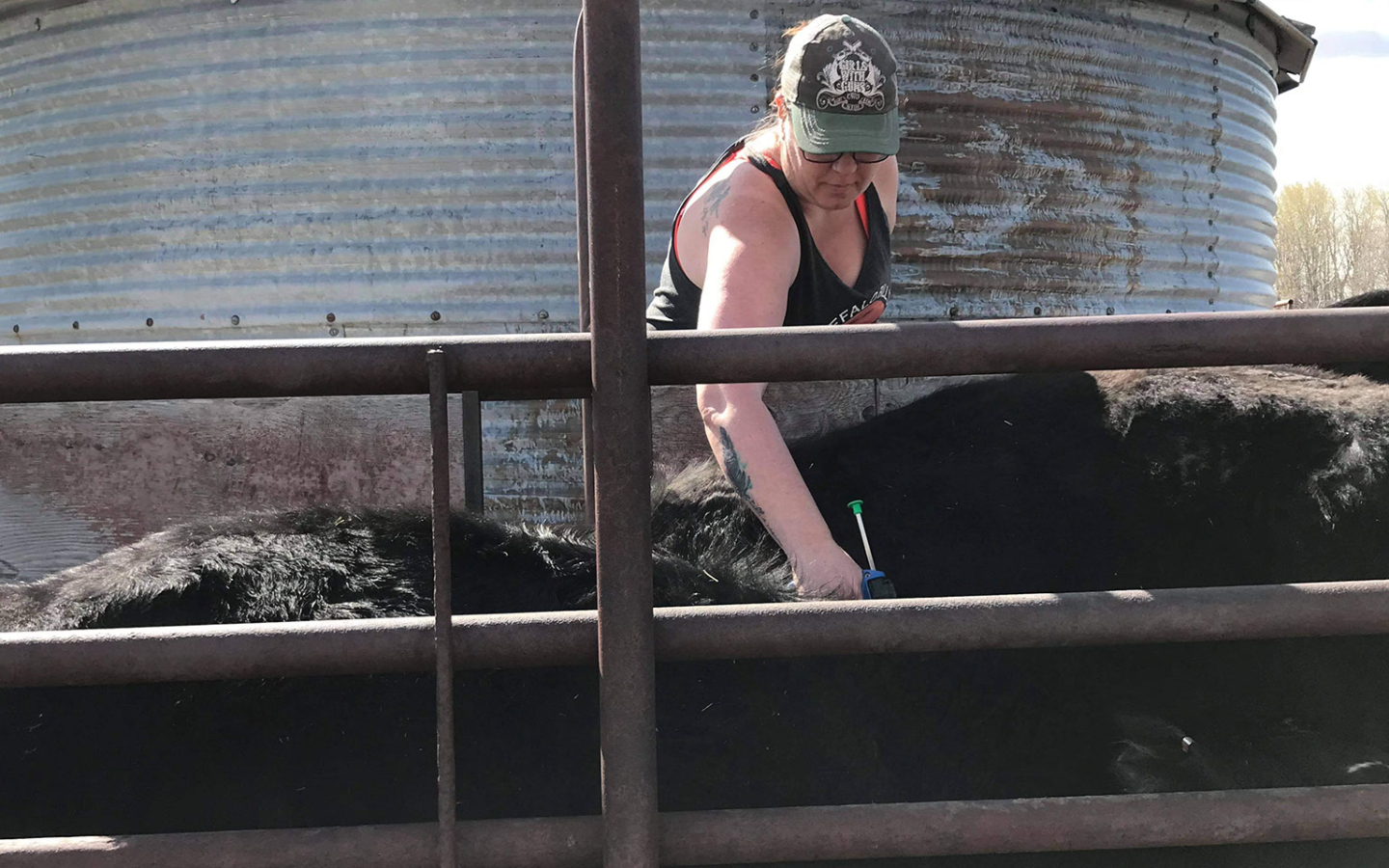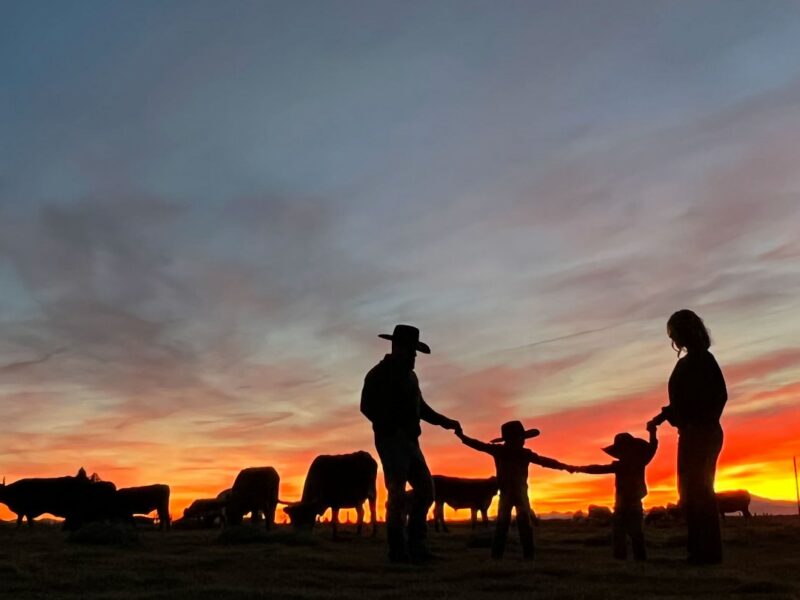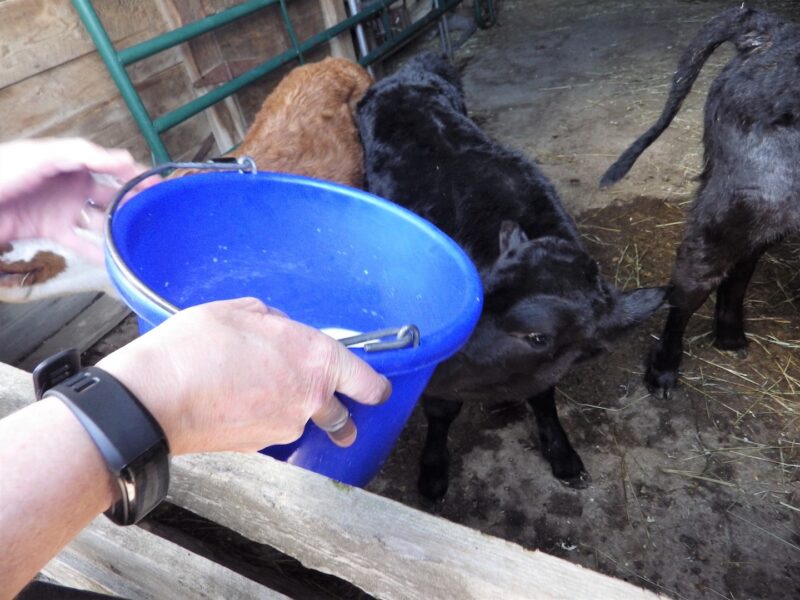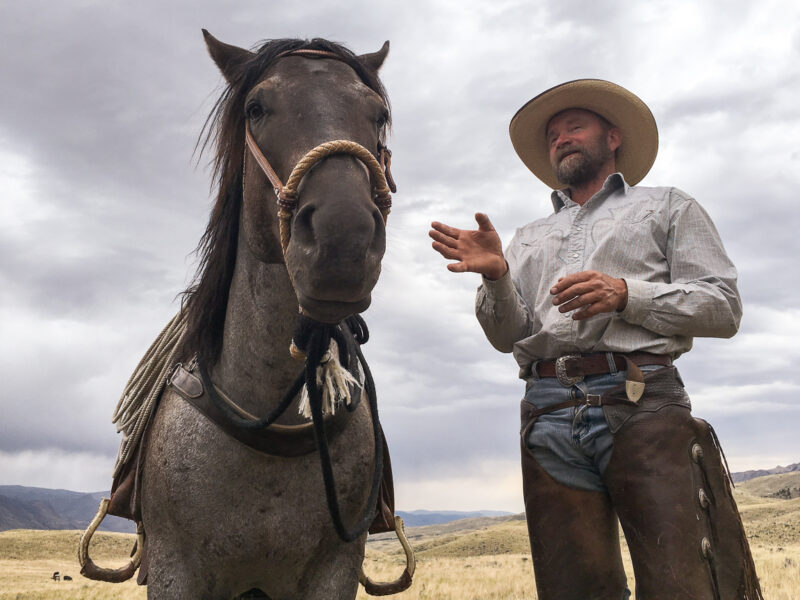Trina. A Human of the Working Wild
Humans of the Working Wild is a collection of stories from people in the West who are living, recreating and working with and among wildlife on working lands, lightly edited from their own spoken words. Humans of the Working Wild speaks across the rural-urban divide, sharing common human experiences on working lands that provide important wildlife habitat. We are inspired by one of the most successful profile series of all time, Humans of New York.
“My mom was the perfect Mormon/rancher’s wife because she kept her mouth shut, she raised her kids, she cooked, she cleaned, she did all the things that women are supposed to do. So I watched her and I grew up knowing how to do all those things, but I also watched my dad.… My daddy was always my hero, probably like every other girl that has a rancher for a dad. My dad never sat quietly if he saw something that was wrong or needed to be done or needed to be taken care of. I learned that from him.
“[Growing up], it was just my big brother and I for a [ranch] workforce for quite awhile. Because I wasn’t a boy, [my dad] didn’t want me out there, but because he needed me, I had to be out there anyway…. I started raking hay on an old crank start tractor when I was seven, all by myself. No one else out there. My dad would help me crank start it because I wasn’t strong enough. And then I would get on the tractor and go rake hay by myself and I would come home when I was done….We just learned how to work hard and if we were told to do it, we did it. Nobody held our hands.
“I grew up Mormon and my dad was super strict in what girls were supposed to do and not do…. I didn’t get to learn how to rope because girls aren’t supposed to rope. I didn’t get to break my own horses because girls aren’t supposed to do that. All these things my brother was, of course, doing.
Because I wasn’t a boy, [my dad] didn’t want me out there, but because he needed me, I had to be out there anyway….
Trina.
“I don’t remember women ever being in corral when we were working cows. I think it was just men and kids. And that was the same here. When I first came to my husband’s boyhood ranch, I went to the corral with [him] for the first branding, and I was like ‘Where’s all the women?’ And he’s like, oh, they’re at the house, they don’t come down here. And I’m like, ‘Well, that seems stupid.’ We went to the house for lunch and I tell you what, those women were in full makeup, jewelry, nice clothes. Like, that’s what they do, they show up and they cook lunch and they hang out in the hen house.
“I’m not that kind of a person. I was like, ‘this is bullshit. I don’t want to be in the house all day. I want to be out in the corral working.’ And so I just told my husband, ‘this is not me. I can’t do it. I will cook lunch because that is my responsibility. But I will prepare it the day before and then I will come to the corral. And when I need to leave half an hour before lunch or whatever to get everything ready, then I will go. And then when I get done putting lunch away, I will be back in the corral and that’s the way it’s going to be.’ And he was like, ‘shit, I don’t care.’… My husband and I have worked alongside each other for 18 years now. I feel like we’re getting pretty good at it. We like to be together, that’s the whole reason we got married.”



“When I started stepping into this advocacy role, I got a lot of pushback because I’m a girl for one and girls aren’t supposed to do that. I’m young, which I’m not, but I’m young compared to everybody else at the table. [It was] all men, all the time. So I come in and start telling them what to do and they’re like, ‘yeah, I don’t think so.’ I’ve had to earn the respect and I have just through doing stuff…. A lot of people don’t like that I have a nose piercing, they don’t like that I have tattoos, because that’s not what a traditional rancher looks like. And I’m like, well, you know what? What I am is in here, not all of this. And if I want to wear a hoop in my nose, you can go to hell if you don’t like it.
“Does my dad hate my nose ring? Yes. Does he hate all my tattoos? Absolutely. Does it make me any less smart and exactly like him? No, and if he was a girl, he’d probably have them too. There have been a lot of obstacles that shouldn’t be there. And I don’t want to say that I’m oppressed… but the truth is that traditionally, especially in the West, men do all the things and women stay in the background and make the kids look good and keep them quiet. And I am not one of those people. I am raising my kid the same way I was raised and I feel like she is turning out pretty good. But I am not the one to keep quiet. My husband is quiet, but I am the one that will say, you know what, I don’t think that’s right, and I’m going to go do something about it.
But the truth is that traditionally, especially in the West, men do all the things and women stay in the background and make the kids look good and keep them quiet. And I am not one of those people. I am raising my kid the same way I was raised and I feel like she is turning out pretty good. But I am not the one to keep quiet.
Trina.
“It has taken so much courage. I was so shy as a kid, I didn’t talk to anyone. I wouldn’t make eye contact. I’m still super shy and I have to force myself to talk to people, which is weird because I go to all this stuff where I don’t know people and then I’m just yelling at them, which is sometimes easier if I don’t know them. I am super duper shy still. So I had to overcome that and I’ve had to overcome being a girl with a nose ring. But once people get to know me, they’re like, ‘OK, she’s legit. She grew up on a ranch. She owns a ranch. She has all this experience.’ …People appreciate that I just say what I think and I don’t beat around the bush and I don’t play all those political games that a lot of people play in our advocacy efforts. I don’t have time for that. That is what has helped me overcome the hurdles and now they don’t even notice my nose rings or my tattoos anymore because they know that I’m going to get shit done.
“No matter who you are, conservation is important. It doesn’t matter if you’re an environmentalist. It doesn’t matter if you’re a rancher. It doesn’t matter if you’re a bear hugger. It doesn’t matter if you don’t even care. Conservation is important and we can all agree about that. Then we have to build on that. That’s what I’ve been trying to do with this new ranchlands group and also with all the other things I serve on. We have to bring people together to have these conversations or we’re not ever going to go anywhere, nothing’s ever going to change…. Collaboration is such a dirty word now, but the only way we’re ever going to be able to save the planet and save ag producers is by working together with people of opposing views and finding a middle ground. That’s the only way it’s going to help.”






